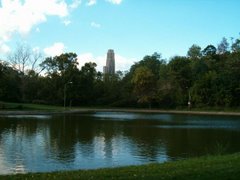While the Open Source piece is further off than the Homeland Security piece, I wanted to get a thread started so that we can continue to brainstorm. I will let you all know once I hear more details about the piece. Here are the notes that I have from our last DAWG meeting (feel free to add to this list):
- Background research on the open source movement
- Academic fair use/copyright issues (legality/workability)-- possibly contact Ted Fritz, General Counsel at Pitt
- Debate history-- can we trace the evolution to the card?
- DOSA as a precursor to genuine debate collaboration/trial run for the DAWG model of co-authorship
- Effect of the DRG on international debate (changed types of arguments run in Japan)
- Structural considerations-- what questions do we need to answer before the debate community signs off on this project? Is it really going to benefit smaller programs like it purports to do? Or will it simply benefit those teams that have the people-power to keep up with it?
- Which contributions will be valued?
- What will be the effects on debate pedagogy? Will it deprive the activity of its research benefits for students? Are there advantages to making the activity less research-driven?
- What are the advantages and disadvantages to "opening our tubs to the rest of the world"?
- Gordon's Amish example


3 comments:
I think before we begin, we need to do some thinking about the nature of an "archive" in a more general sense. It's not just a storehouse of information, but a whole way of thinking about what to remember in debate, even about what debate is, at a fundamental level.
For instance, I don't really think debate is "Heg good/bad" with a series of juxtaposed quotes -- it's a performance ensemble, as much about the quality of reading as the content (ideas that words transmit). If it's the latter, than the Daily Show clipping images of Bush contradicting himself is a "real" debate. "Debate" is not archived.
If it is just an source database, what makes it different than ebscohost? Why would we need it, if its the same material archived? Are there parallels, like from real news to the news digest, or from the wire services to the soundbytes culture? What do these parallels tell us?
Last rambling: if we take the yea sayers at their word, that it evens the playing field and we all have the same evidence, what's the real purpose of having evidence in the first place? It's kind of like playin' "cards": if you all got the same trumps, what's the purpose of playing them? Will the move actually devalue evidence in the long run?
OK, enough for now...but I'm kind of interested in other thoughts...
Brent
I'm interested in the idea of debate's relationship to technology in a broader sense, and how "techne" in general has always shaped debate's self-explanations for its value - the CEDA break as a historical moment that centers the technology of cross-examination as "what we do" is an interesting historical example - is the open source archive a similar move, a move to streamline and define something, as Brent pointed out, is almost completely ephemeral and the stuff of memory?
Well, I think we have a lot of ideas on the potential impact on debate, but we don't have an organizing principle on how to approach the essay. What thread runs through the entirety of the essay? What perspective on the relationship between technology andthe activity should we take to rationalize the discussion of various topics?
Or perhaps, that is how we should begin the discussion. Reason through a perspective on technology generally, then apply that perspective to the DOSA.
Post a Comment